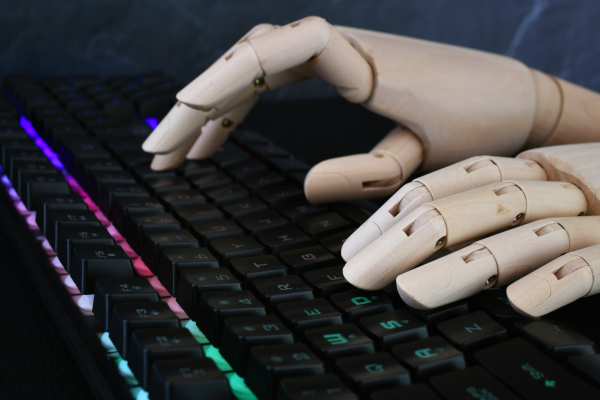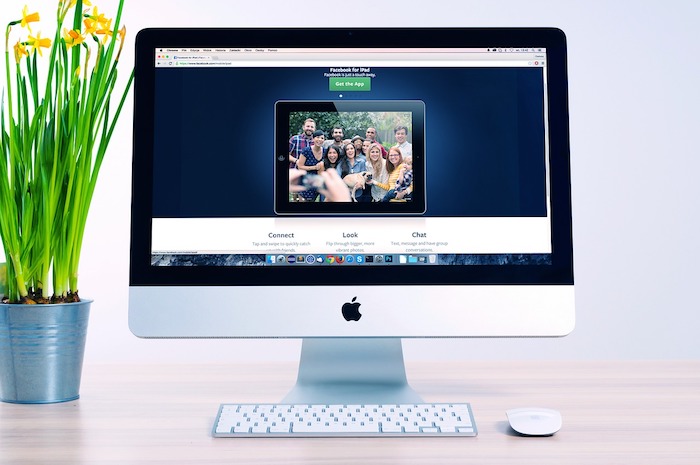The Book Industry Nightmare: How AI Could Destroy The Future of Publishing
In a world where technology continues to revolutionize various industries, artificial intelligence is leaving its mark on the book publishing and bookselling sectors. While some of these changes could be positive or neutral, it is also possible to see a future where changes due to AI could go horribly wrong.

While AI has the potential to bring positive changes to the book publishing industry, it poses a fair number of risks that could drastically alter the industry as we know it. Publishing professionals should brace for reduced jobs, diversity, creativity, and increased privacy and intellectual property challenges in our AI-enhanced future.
Job displacement:
Although many think of creative industries as immune to the disruptive effects of artificial intelligence, AI automation may lead to the displacement of many jobs in the publishing industry. Even today, in the early stages of AI technology, copyediting, proofreading, typesetting, cover design, marketing copy, audiobook narration, and more can be done by AI to such an extent that human involvement in these areas can be reduced or even eliminated in some cases.
The loss of more than fifty thousand jobs in the U.S. alone would be a blow to the creative workers staffing the book industry and the economy in general, but that is not even the direst issue facing this essential cultural industry due to the looming effects of AI.
Reduced diversity and creativity:
AI algorithms often rely on existing data and patterns to make recommendations and decisions. This can inadvertently reinforce existing biases and limit the diversity of promoted or published content. AI-powered systems might prioritize popular genres or books with higher market potential, potentially overshadowing niche or unconventional works.
Human creativity is a complex and multidimensional process deeply rooted in our experiences, emotions, and imaginations, which AI has yet to replicate fully.
Unfortunately, while many people working directly in the book industry (those whose jobs are most likely to be replaced) are deeply passionate and knowledgeable about literature and storytelling, the C-suite of the parent companies of those publishers are typically not so inclined.
The "big five" of publishing (Penguin Random House, Hachette, HarperCollins, Macmillan and Simon & Schuster), who control 80% of the U.S. book trade, are primarily passionate about profits and shareholder value. If AI can reduce many of the costs and risks involved in the industry, you can be assured that it will be extensively used, even if that means a loss for society and culture.
Diminished human touch:
AI tools can assist with various content creation and editing aspects, but they may lack the human intuition, creativity, and context required for nuanced writing and editing decisions. Overreliance on AI-generated content or editing suggestions could result in a loss of the unique voice and perspective of human authors and editors.
If AI is used as the primary filter in acquisitions, it could lead to a decline in unique voices being published, as emerging authors find it harder to break through AI-driven decision-making processes.
This may lead to a stagnation in literary innovation, with fewer transformative ideas being explored and brought to life, anda self-perpetuating narrowing of popular interests, as AI systems base their recommendations on existing preferences, leaving less room for new ideas to flourish.
Consolidation of power:
As AI-driven recommendation algorithms become more prevalent, there is a risk of a few dominant platforms or retailers controlling the majority of book sales.
This consolidation of power in an already over-amalgamated industry could limit competition, reduce options for authors and readers, and potentially restrict the diversity of voices and ideas being published and promoted.
Intellectual property challenges:
AI technologies can generate content or assist with writing, raising questions about copyright ownership and plagiarism. Determining the boundaries of AI-generated content and protecting intellectual property rights can be complex and may require legal and ethical considerations.
Current AI implementations for text are large language models , determining what to write based on its experience with the the data, written by humans, that is has been trained upon. This means that much of the content created by AI is derivative in nature. Determining who can copyright this content, and who it can be attributed to, will be a source of legal debate in the years to come.
Privacy concerns:
AI relies on vast user data to improve recommendations and personalize experiences. The collection and use of personal data raise privacy concerns.
Ensuring that AI systems respect user privacy, handle data responsibly, and provide transparent and informed consent mechanisms is crucial.
From recommendation algorithms that could be parsed by authoritarian state actors to target individuals that hold particular beliefs, to tainted algorithms that censor some viewpoints, it is going to become essential to build strong legislative barriers to protect personal data. The United States Senate, with its average age of 64, 66% lawyers, and 2% former tech industry representatives, is ill-equipped to define, much less legislate, AI. The outlook is bleak.
Addressing these potential adverse effects of AI requires careful consideration, ethical guidelines, and ongoing monitoring. It will become increasingly important over the coming years to strike a balance between AI-driven automation and human expertise to preserve the values of creativity, diversity, and human connection that are integral to the book publishing industry.
Read These Next
What Publishers Are Doing Wrong With Their Websites
I've been working for the past two weeks updating and upgrading my list of publishers on PublishersArchive.com. I've visited literally hundreds (maybe even thousands) of websites set up by publishers to sell their books and promote their authors, and I've noticed a few things that a great many publishers are doing, or failing to do, that limits the effectiveness of their sites.
Getting Started as a Children's Book Illustrator
Becoming a children's book illustrator is no easy task. No matter how talented you are, there are literally thousands of other talented illustrators out there looking for the same break you are. So how do you stand out from the crowd and be noticed?
Do-It-Yourself Audiobook Narration
While many well-known authors use popular audiobook narrators for their audiobooks, self-publishing authors often decide to narrate their own manuscripts. While this approach has pitfalls, with some quality equipment and trial and error, many technical problems can be avoided.






